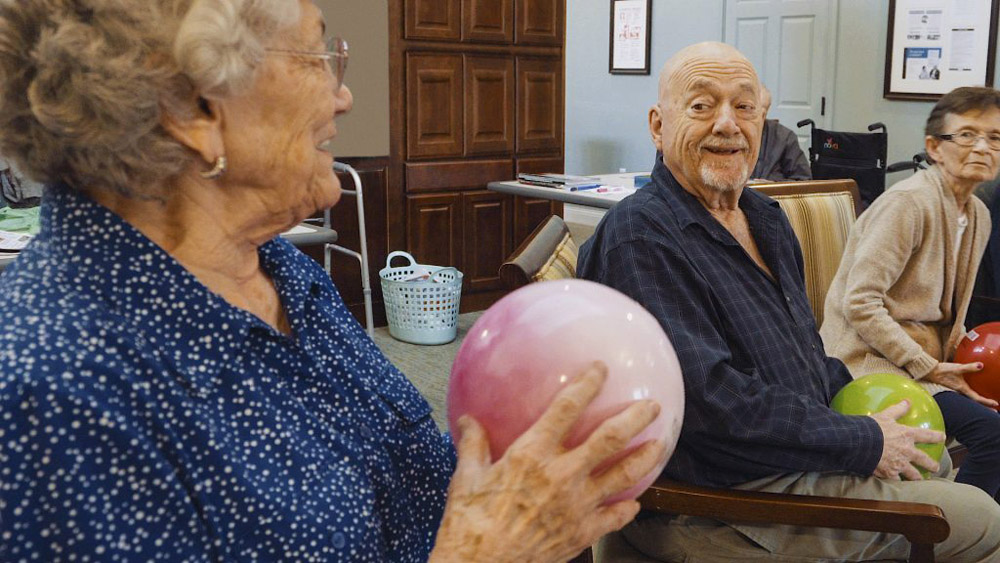When It’s Time to Transition a Loved One into Alzheimer’s Care
Discover Compassionate Memory Care: Enhancing Lifestyle for Loved Ones
The trip of taking care of a loved one with cognitive impairments presents special obstacles that can greatly influence family members characteristics and emotional well-being. Caring memory care facilities supply an organized, encouraging environment created to resolve these obstacles while boosting the lifestyle for homeowners. By concentrating on customized care and purposeful engagement, these facilities not just boost those affected by conditions like Alzheimer's and dementia however likewise offer comfort for families. As we explore the essential aspects of thoughtful memory care, it becomes clear that comprehending these alternatives can make a significant distinction in the lives of all entailed.

Comprehending Memory Care
Understanding memory care entails acknowledging the specific support and solutions made to help people with cognitive disabilities, such as Alzheimer's disease and other kinds of dementia. Memory care centers concentrate on developing a safe and structured setting that advertises the health of residents while addressing their distinct cognitive challenges.Key parts of memory care include educated personnel who are educated regarding the complexities of dementia and associated problems. These specialists use evidence-based techniques to improve cognitive feature and keep dignity through embellished care strategies. The physical atmosphere is likewise customized to lessen complication and promote knowledge, typically including safe locations to avoid wandering. Memory Care Charlotte.Moreover, memory care stresses social involvement and significant activities that stimulate cognitive capabilities and foster connections amongst homeowners. This strategy identifies the value of preserving social interactions to fight isolation usually experienced by individuals with memory loss.Families play a crucial role in memory care, as their participation helps produce a helpful network that enriches the lives of homeowners. By comprehending the specific nature of memory care, households can make informed choices to improve the lifestyle for their loved ones encountering cognitive problems
Trick Features of Compassionate Care
Caring care in memory care settings is characterized by an all natural strategy that prioritizes the emotional and emotional health of citizens. Trick features of this strategy consist of embellished care plans customized to every homeowner's unique needs, choices, and biography. This customization promotes a sense of identity and belonging, which is important for those experiencing cognitive decline.Another essential feature is the existence of experienced staff who are not just competent in mental deterioration care but likewise thoughtful and empathetic. These caregivers engage in significant communications, making use of techniques such as validation therapy to attach with citizens and lower sensations of disappointment or anxiety.Additionally, caring care settings focus on sensory excitement and therapeutic tasks that reverberate with homeowners' passions. This might consist of art treatment, songs sessions, and memory tasks, all made to boost cognitive feature and psychological connection.Furthermore, family members involvement is encouraged, allowing loved ones to join care activities and support their member of the family's emotional needs. Ultimately, the key attributes of caring care produce an atmosphere where citizens really feel risk-free, valued, and comprehended, greatly improving their lifestyle.
Advantages for Citizens and Families

Activities That Foster Involvement
Purposeful tasks play a crucial duty in fostering involvement among citizens in memory care settings. These tasks not only boost cognitive function yet also promote social interaction, psychological wellness, and a sense of objective. Tailored programs that think about residents' interests and capabilities are very important for making the most of engagement and enjoyment.Creative searches, such as paint, crafting, or songs therapy, urge self-expression and can evoke enjoyable memories. Structured workout sessions, including chair yoga exercise or walking teams, boost physical health while giving opportunities for socializing. Additionally, reminiscence treatment, which involves reviewing past experiences and noteworthy life events, can strengthen connections in between residents and caregivers.Incorporating interactive games, puzzles, and also horticulture can better boost cognitive interaction and foster team effort among citizens. Frequently arranged group tasks, such as flick nights or themed parties, produce a sense of community, enabling citizens to develop relationships and share experiences.Ultimately, the execution of diverse activities tailored to private preferences is essential in memory care. By promoting involvement via significant programming, facilities can significantly enhance the quality of life for residents, guaranteeing they really feel valued and attached within their area.
Selecting the Right Memory Care Facility
Picking a memory care center includes careful consideration of various aspects pop over to this web-site that influence the wellness of residents. Begin by evaluating the facility's total atmosphere, making particular it is risk-free, inviting, and created to lower complication. Look for rooms that encourage social interaction while providing personal privacy for individual reflection.Next, analyze the credentials and training of the personnel. Caring for people with memory problems needs specialized understanding. Verify that staff participants obtain continuous training in dementia care and employ thoughtful communication techniques.Additionally, think about the variety of solutions provided, such as customized care plans, restorative activities, and assistance for household members. A center that highlights all natural care can significantly improve the lifestyle for residents.Visit prospective facilities to observe communications between personnel and citizens, and ask concerning their strategy to engaging those with memory obstacles. Examine testimonials and look for referrals from healthcare specialists or regional support groups.Lastly, take into consideration the center's place and ease of access for family visits, as regular contact can boost locals' emotional well-being. By taking these variables into account, you can make a knowledgeable choice that ideal sustains your liked one's requirements.
Regularly Asked Questions
What Certifications Do Memory Care Staff Generally Possess?
Memory care staff generally hold qualifications that consist of specialized training in mental deterioration and Alzheimer's care, as well as certifications in very first help and CPR. Many have histories in nursing or social work, offering them with crucial abilities in client assessment and psychological assistance. Memory Care. In addition, recurring education and learning in behavior management techniques and communication methods is typical, ensuring staff remain proficient at attending to the one-of-a-kind needs of people with cognitive impairments while fostering a supportive environment
How Can Households Take Part in Their Family member's Care?

What Is the Price Range for Memory Care Solutions?
The price array for memory care solutions can differ considerably based on elements such as location, facility features, and level of care needed. Typically, families may expect to pay in between $4,000 and $8,000 each month. Added solutions, specialized programs, and private lodgings can additionally affect rates. Dementia Care. It is a good idea for households to completely research study and go to facilities to recognize what is included in the costs and check out economic aid alternatives readily available
Are There Specific Dietary Options Available for Residents?
Yes, many memory care centers offer customized nutritional alternatives to fulfill the certain dietary needs of locals. These options usually think about different dietary restrictions, such as diabetes mellitus, heart wellness, or allergies. Facilities typically employ certified dietitians to create dish strategies that advertise overall wellness while thinking about individual choices. In addition, member of the family are typically motivated to take part in conversations pertaining to dietary choices to assure that their liked ones' tastes and requirements are appreciated.
Exactly How Are Emergencies Taken Care Of in Memory Care Facilities?
Emergency situations in memory care facilities are managed via established procedures developed to ensure resident safety and security and speedy response. Staff are educated in emergency situation treatments, including initial aid and discharge plans - Memory Care Charlotte. Facilities conduct normal drills to get ready for various circumstances, such as medical emergency situations, fires, or all-natural disasters. Furthermore, communication systems remain in area to alert personnel and emergency situation services without delay, guaranteeing that citizens obtain immediate attention and care throughout critical situations